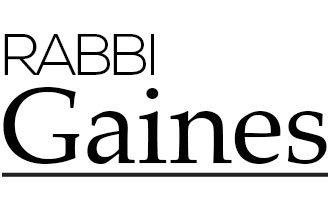

Is Hidden Kindness Better?
 Kindness comes in many forms, but no matter the chosen expression (the form of kindness one chooses to perform), it all can be classified as one of two types: 1) Revealed kindness or 2) Hidden kindness. Let’s define them. Revealed kindness means “conspicuous,” or, revealed to the eyes of all. Imagine, for example, a man strolling into the City of Hope (hospital specializing in pediatric cancer) and handing the faculty $5,000,000 dollars. I am pretty sure that by dawn, every local news agency would be reporting the benevolent act. And why? Because they were privy to it - they witnessed the giver give his gift. Now what if that same kindhearted gentleman placed the $5,000,000 in a briefcase and had it dropped off by a middleman (he never appears on the scene); would the news run to report it? Well, yes, but there would be no person/benefactor to whom they could point their finger - the giver remains hidden.
Kindness comes in many forms, but no matter the chosen expression (the form of kindness one chooses to perform), it all can be classified as one of two types: 1) Revealed kindness or 2) Hidden kindness. Let’s define them. Revealed kindness means “conspicuous,” or, revealed to the eyes of all. Imagine, for example, a man strolling into the City of Hope (hospital specializing in pediatric cancer) and handing the faculty $5,000,000 dollars. I am pretty sure that by dawn, every local news agency would be reporting the benevolent act. And why? Because they were privy to it - they witnessed the giver give his gift. Now what if that same kindhearted gentleman placed the $5,000,000 in a briefcase and had it dropped off by a middleman (he never appears on the scene); would the news run to report it? Well, yes, but there would be no person/benefactor to whom they could point their finger - the giver remains hidden.
Question: Which act is more Godly, the revealed or the hidden? Be careful, this is a trick question!
Answer: Both, for even revealed kindness - conspicuous acts of generosity - fulfill the Divine mandate to be kind. That being said, there is a quality to hidden kindness that resembles more closely (in its nature) God!
Let’s explore why:
King David, in his book of Psalms declares, “You who dwell in the secret of the most high, who abides in the shadow of the omnipotent.” (Psalm 91). Question: Why does the verse use the double expression, “Secret of the most high” and “Shadow of the omnipotent?” Why couldn’t the verse have simply stated, “You who dwell in the secret of the most high?” Why are both expressions (“Secret of the most high” and “Shadow of the omnipotent”) necessary? Explains the great and holy Ba’al Shem Tov, “shadow” (in this context of Scripture) means: Emulation, i.e. to imitate the qualities of another. Explains Kabbalah, when we “shadow” something, strive to imitate its nature, we draw closer to it. And what is the “nature” of God - God’s quality - that if we imitate (shadow) it, we can draw closer to Him? In two words: Hidden kindness! But why? Why is Hidden kindness more Godlike?
Explains Kabbalah, when God created the world He constricted His light (His ultimate revelation) through a series of infinite contractions termed (in Hebrew) “Tzimtzum.” This tzimtzum, explains Kabbalah, allows for the creation of self-conscious existences, e.g. you and me experiencing ourselves, right now, as if separate beings (disconnected from our Godly source). Explains the Ba’al Shem Tov, these concealments set the stage for what is man’s main mission: to transcend self consciousness and find/reveal God (remove the tzimtzum and reveal Him). Since concealment, according to Kabbalah, is where everything begins, it shouldn’t be surprising to discover that most of life’s deepest truths are in fact (initially) hidden. Such is the case of God’s kindness, for the bulk of its expression (in the physical world) remains hidden from our senses. In the words of the Ba’al Shem Tov, “If the sun were to rise and set once every thousand years (like Biblical miracles), we would call it a miracle.” In other words, because the miracles of nature (termed here “sunrise and sunset,”) are hidden, locked away in endless repetitions of daily, weekly, and yearly cycles, we call them “common.” What we call “common” or “natural” is nothing but our lack of perception, our inability to grasp the truth! Would we truly be able to grasp all the great goodness and kindness the Creator manifests in our moment to moment experience, we would stand in perpetual awe, praising Him day and night without cessation. It’s the hiddenness of the Creator’s loving providence that prevents us from grasping this truth.
Keeping all the above in mind, we can now understand the double expression (“Secret of the most high” and “Shadow of the omnipotent”) employed by King David in Psalm 91. When we “dwell in the secret of the most high,” i.e. engage in acts of kindness (called “Most high”) in a way that is “secret,” or, hidden from view, we “Abide in the shadow of the Omnipotent,” i.e. emulate God (who’s kindness is mostly hidden).
Conclusion: Worry not about recognition of the good that you do, for it’s only when no one sees (is privy to your kindness) that you “touch” (emulate and thus connect to) the Divine. So rejoice in your hidden accomplishments.....they are much greater than you know.
Related Posts
By accepting you will be accessing a service provided by a third-party external to https://daatifoundation.org/

